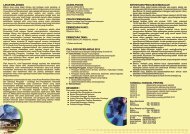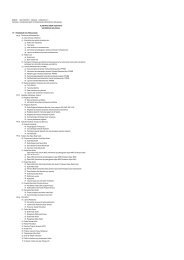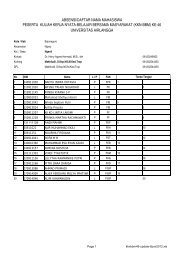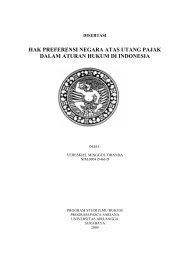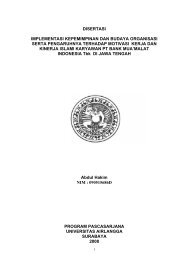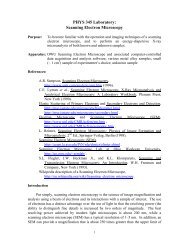Nietzsche's Naturalistic Ethics - UNAIR | E-Book Collection
Nietzsche's Naturalistic Ethics - UNAIR | E-Book Collection
Nietzsche's Naturalistic Ethics - UNAIR | E-Book Collection
You also want an ePaper? Increase the reach of your titles
YUMPU automatically turns print PDFs into web optimized ePapers that Google loves.
Richardson (1996), p 47, puts it: “[A] person is formed of a vast network of power balances, struckat a hierarchy of levels.” In light of the account of the mind in section 2, none of this is surprising.The mind, after all, derives from the oppression of instincts (see GM II, 16). 284.4 This first objection to Korsgaard’s Kant answers the objection from the irrelevance of thirdpersoninquiries. Far from its being the case that third-person inquiries are irrelevant, first-personinquiries are based on a chimeric understanding of the mind. In light of Nietzsche’s theory of themind, there is no intelligible notion of a decision maker whose deliberations are shaped by theconsideration at the center of Kantian ethics. The point is not that agents experience difficultiesapplying such considerations, but that the view of agency is misguided. There is no first-person pointof view as required by Kantian moral theory. This gives plausibility to Nietzsche’s claim that, ratherthan questions for foundations of morality, we need a typology of different characters whose typefactsproduce different Gütertafeln, tables of value (cf. BGE 186; see also BGE 268). While this firstobjection rebuts the objection from the irrelevance of third-person inquiries, there is more to the28 These remarks touch on large issues we cannot discuss satisfactorily. In particular wecannot explore arguments to help us decide between those pictures of the mind. We addressmerely one Kantian response. This response is that, leaving disagreements about the nature ofthe mind to the side, the Kantian account can draw on the phenomenology of decision-making:whatever is going on in the mind on some physiological level, the agent perceives herself asengaged in deliberation and as making choices. The point of view of deliberative attachment ispart of our life experience, part of the world we inhabit as agents. There is a twofold Nietzscheanrejoinder to this: For one thing, it is dubious that the phenomenology of decision making reflectsanything like the Kantian view. The experience of being torn and inconsistent in one’sinclinations is at least as real as the experience of choosing which desires to act on. Perhaps webelieve in the idea of the “inner chooser” merely because it has been part of our upbringing forso long. But for another thing, the Nietzschean might grant this response and point out thatguidance for how to live should draw on a correct picture of the mind and of what it is to be ahuman being, and perhaps the best way of giving such advice is not to give advice on how todeliberate, but on what sets of circumstances to expose oneself to. If our minds deceive us aboutwho we are, recommendations for how to live should take that into account.30




